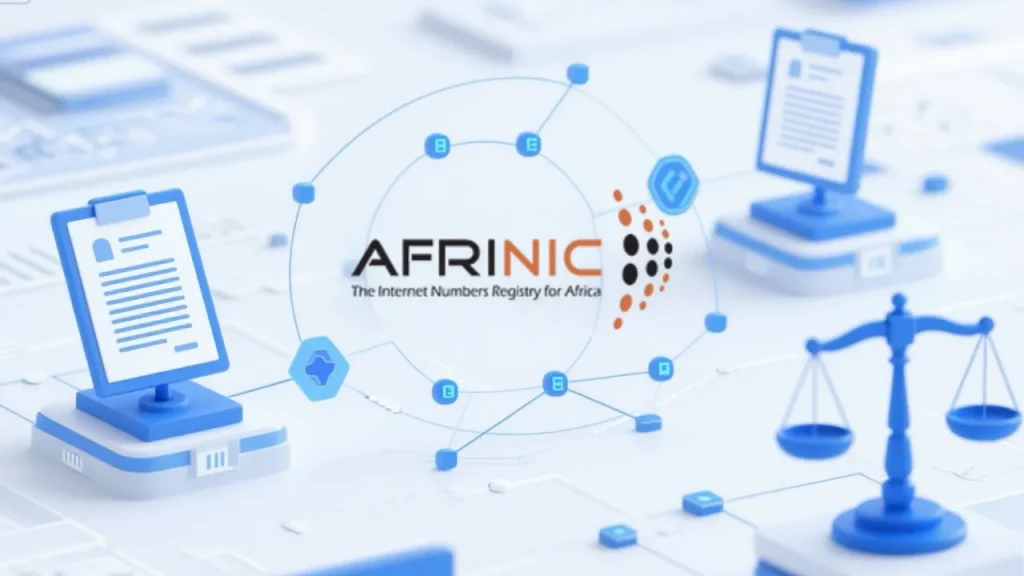- AFRINIC faces collapse as governance failures undermine its constitutional basis and erode trust in internet resource management.
- Legal certainty is critical for safeguarding Africa’s connectivity, with calls for reform under existing RIR structures rather than new institutions.
AFRINIC faces governance collapse
The African Network Information Centre (AFRINIC) is at the centre of a governance breakdown. It was created as Africa’s Regional Internet Registry (RIR), but it is now seen as a “failed registry” after many years of mismanagement. The annulment of the June 2023 board election came after one proxy dispute, and this showed what many called “unworkable election standards.” Valid votes were discarded, and this weakened confidence in the process. Critics say AFRINIC’s leadership in the past and in the present has allowed dysfunction to grow, and this has eroded trust in governance and put Africa’s internet future at risk.
Cloud Innovation, AFRINIC’s third-largest member, has made a call for a reset. CI says AFRINIC’s governance is broken beyond repair, and the body can no longer be trusted with Africa’s IP resources. CI has not asked for a new registry, but has asked that ICP-2 be applied. Under this, an existing RIR like RIPE, ARIN, or APNIC would take over AFRINIC’s duties. CI presents this as a practical step to protect continuity in IP allocation and to give legal certainty for African operators.
Also read: Cloud Innovation calls for AFRINIC wind-up after ‘impossible’ election standards
Also read: EXPOSED: The letter that reveals who was really benefitting from AFRINIC’s lawsuits
Why it’s important
The AFRINIC crisis is about failed elections and also about the role of constitutional law in internet governance. A registry that manages vital IP resources must work under clear and lawful structures. Without legal certainty, operators cannot build networks, investors cannot plan infrastructure, and citizens risk losing access to reliable digital services.
Kurtis Lindqvist, the CEO of ICANN, has added to the dispute. He issued a new policy paper, and this was different from the long-standing ICP-2 framework. ICP-2 has existed for many years, but Lindqvist’s document gives ICANN powers to derecognise RIRs. Observers call Lindqvist’s action a “quiet power grab” because it avoids the normal multistakeholder processes. Critics say his plan weakens Africa’s bottom-up model of governance and also extends external influence into regional autonomy. Lindqvist later reduced his derecognition threats, but the fact that he introduced the new framework raised constitutional concerns about whether such authority can be used without damaging confidence in neutral governance.
For Africa, the stakes are high. IP resources are the base of connectivity and digital growth. A loss of regional oversight risks breaking Africa’s role in the global internet. Legal scholars point out that constitutional certainty gives stability in government and also in transnational technical bodies. Without such certainty, operators face unpredictable rulings and legal disputes that block reliable governance.

